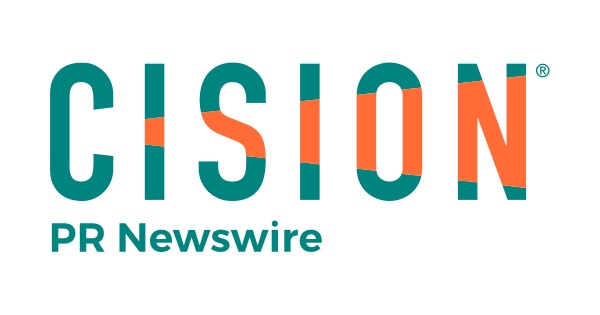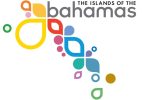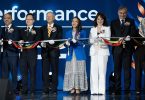MOSCOW, May 30, 2018 /PRNewswire/ —
During the St Petersburg International Economic Forum (SPIEF) Andrey Guryev, PhosAgro’s CEO, President of the Russian Association of Fertilizer Producers (RAFP) and Vice President of the International Fertilizer Association (IFA) for Eastern Europe and Central Asia, took part in the Russia-France Business Dialogue panel discussion attended by the Russian and French Presidents Vladimir Putin and Emmanuel Macron.
The panel, focusing on issues of and prospects for bilateral cooperation, included speeches by representatives of the two nations’ business communities, government bodies and civil society.
Commenting on the Russia–France business dialogue in the domain of agriculture and application of mineral fertilizers, PhosAgro CEO and RAFP President, Andrey Guryev, noted: “The phosphate-based fertilizers produced in Russia (with PhosAgro leading the charge in the domestic market) are of exceptionally high quality and environmental purity.
“While many manufacturers of fertilizers that are far less eco-friendly enjoy free access to the European market, Europe continues imposing a 6.5% customs duty on the pure products originating from Russia, with the European consumers being the ones who pay with their health and money for artificial restrictions on imports of the Russian clean fertilizers.
“We are happy to see that Europe has recently launched a public discussion on the contamination of soils, agricultural products and foods with toxic heavy metals such as cadmium and arsenic. Indeed, today this is a global challenge to human health and preservation of the environment for the future generations. This topic is of particular significance to France, the leading agricultural producer in the EU and the largest importer of phosphate fertilizers.
“France is uniquely positioned to lead the EU by example if it chooses to limit its use to eco-friendly phosphate fertilizers with a low content of harmful impurities. Russia will gladly help its long-term partner to put healthy food on the French tables by ramping up the volumes and expanding the range of exported green phosphate fertilizers. In its turn, France just needs to take charge when it comes to putting a cap on fertilizers with dangerous heavy metals and other impurities in Europe, as well as set in motion the cancellation of the EU’s 6.5% duty on Russian imports of phosphate fertilizers,” said Andrey Guryev, PhosAgro’s CEO.
Another important avenue for cooperation between Russia and France is the banking sector. Over the past few years, French banks have been actively providing financing for the Russian corporations and their foreign subsidiaries.
PhosAgro has been a long-term partner of several French banks. For example, Societe Generale acted as PhosAgro’s lender and lead arranger of a USD 250 m pre-export loan that the Company raised in June 2016 and has since fully repaid. The bank also worked with PhosAgro in 2017-2018 on its second and third Eurobond issues, of USD 500 m each.
Andrey Guryev also spoke at the Russia-Japan Business Dialogue that took place at SPIEF.
The two countries are expected to further their economic partnership when it comes to developing projects and fostering cooperation between Russian and Japanese businesses. The Russia-Japan Business Dialogue panel discussion at SPIEF 2018 was attended by Russian President Vladimir Putin and Japanese Prime Minister Shinzo Abe and touched on the achievements and current challenges in the relations between the two countries, as well as on new business opportunities and prospects.
Vladimir Putin, said: “Japan is undoubtedly one of our key partners in the Asia-Pacific Region, but not just in Asia. We would like to take our relations to the global level. We took a keen interest in Japanese Prime Minister Abe’s initiatives on developing Russian-Japanese relations in eight priority fields, and have already proposed an 80-project plan on its basis. Some of these projects have already kicked off.”
In his speech, Prime Minister Shinzo Abe, said, “Together, Japanese and Russian companies can implement many projects that will greatly benefit our nations, I am sure of that. I have no doubt that it will lead us towards a bright future. I hope this business dialogue becomes a productive forum for a better tomorrow.”
Andrey Guryev, PhosAgro’s CEO, shared the experience of long-standing cooperation between PhosAgro Group and Japan’s industrial corporations and financial institutions. Russian and Japanese companies can use it in various aspects of their business, such as the implementation of state-of-the-art technology.
“Our cooperation dates back 40 years, to the construction of the first large-scale ammonia plant in Cherepovets using the technologies of the Japanese Toyo Engineering Corporation,” he said. “Five years ago, here at SPIEF, we signed a contract with an international consortium led by Mitsubishi Heavy Industries for construction of a new, highly advanced ammonia plant, which produces 760 kt of the product that we use to manufacture fertilizers. The capital investments in the Cherepovets capacities (including the new ammonia plant) exceeded RUB 65 billion.
“These funds were in part sourced using Japanese project financing, as we became perhaps the only Russian public company to attract a long-term loan of almost USD 500 million directly from JBIC and a consortium of Japanese banks.
“Thanks to that, we were able to utilise some of the best technologies in the world to build the most advanced ammonia facility in Europe, which last year reached its design capacity.”
Praising the quality and effectiveness of cooperation with JBIC, PhosAgro’s CEO Andrey Guryev said that for large-scale industrial projects to be implemented, there need to be more institutions like Japan’s JBIC and Russia’s RDIF.
Shinzo Abe, Japan’s Prime Minister, addressed the questions by the Russian business community and Andrey Guryev in particular on the Japanese government’s plans regarding the most favoured nation status of Russia, expressing his gratitude to those who contributed to developing and strengthening the business ties between Russia and Japan and saying:
“Our governments will continue fostering the business relationship between the two countries, (…) and we would like Japan’s government to support Japanese enterprises.
“The financial system is also very important. Last September, JBIC and the Russian Direct Investment Fund launched and committed USD 1 bn to a joint investment vehicle that has already invested in three projects.
“In February 2018, JBIC collaborated with the Far East Investment and Export Agency and other organisations to establish a venture for developing and promoting investment projects. The company will provide support to the Japanese business when it comes to investing and selecting new projects.
“Two years ago, Mr Putin and I agreed to expand economic cooperation between our countries. That decision, coupled with our willingness to work together, is opening new opportunities and has already yielded results in the last two years.
GOT NEWS? click here
Google News, Bing News, Yahoo News, 200+ publications
“I hope we can explore new avenues for cooperation, and we are doing everything we can to make it possible. This will remain a priority for us, so that Japan and Russia could help each other grow and build a new society.”
Andrey Guryev also took part in televised debates organised by the RDIF and Rossiya 24, titled ‘Investment Breakthrough: Infrastructure and Technology of the Future’.
During the televised debates, participants noted that Russia has established an infrastructure that unites investments from leading sovereign funds from around the world and leading Russian companies. This makes it possible to combine best global expertise and practices with unique opportunities and progressive developments by Russian companies.
One of the main issues discussed by the participants was the effect of investments in creating competitive advantages for companies in the Russian market and abroad.
Over the past five years, PhosAgro has invested RUB 160 billion into its development using best available technologies. As a result, production volumes during this period increased by 40%, to a record 8.3 million tonnes, while labour productivity per employee increased by 2.5 times, which helped the Company win in a Vedomosti rating.
For the last three years, PhosAgro has achieved annual growth in fertilizer output of 10%, with a similar trend for phosphate rock production. This year the Company plans to maintain the same pace of growth.
Last year, PhosAgro completed a large-scale investment into the construction of new, high-tech production facilities. PhosAgro’s new ammonia plant is currently the highest-capacity in Russia (760 thousand tonnes per year), as is the granulated urea line with a capacity of 500 thousand tonnes per year. Investments in the project exceeded RUB 65 billion. These will enable PhosAgro to continue to produce phosphate-based fertilizers that are naturally low in potentially-harmful impurities, helping to support national and global food security. The new production facilities will also create significant potential for increasing production capacity and improving the Company’s self-sufficiency in key inputs.
In the next two years, PhosAgro plans to invest at least RUB 50 billion, which will enable it to open three new production facilities (sulfuric acid, nitric acid and ammonium sulfate) at the production complex in Cherepovets by 2020, and to expand the capacity of the third apatite-nepheline beneficiation plant. PhosAgro is also considering options for the development of the production complex in Volkhov.
PhosAgro CEO Andrey Guryev said: “At present, we are working on a long-term strategy for the development of PhosAgro until 2025, which will be aimed at further improving efficiency, strengthening the Company’s positions in domestic and foreign markets, increasing shareholder value and profitability.
“The Company, whose shares have traded on the London Stock Exchange and Moscow Exchange since 2011, last year conducted its second SPO in recent years. Shareholders successfully placed 4.5% of the shares of PhosAgro. RDIF together with five sovereign funds from China, Kuwait, Qatar, Bahrain and the UAE participated in the SPO, as well as international investment funds from the UK, continental Europe and the United States.
“The Company benefited significantly from the SPO with RDIF, increasing its free float to more than 25%, helping the liquidity of PhosAgro shares traded on the Moscow Exchange to grow 5-fold. The company’s weighting in the MSCI Russia index also grew, while the geography and structure of its investors became more diversified, and the share price broke records.
“RDIF has built an effective mechanism for attracting financing from foreign sovereign funds to the Russian equity market, and this contributed to high demand for PhosAgro shares. The order book for PhosAgro shares was fully subscribed within an hour, becoming oversubscribed thereafter. The volume of the transaction exceeded RUB 15 billion.
“We also expanded the Board of Directors of PhosAgro to ten people from eight, and an absolute majority of those are independent directors. In addition, through our cooperation with RDIF, we have gained invaluable insight into communication with and decision making by sovereign funds.
“I believe that RDIF provides a certain assurance of quality. Trust in Russia, inspired by this fund, is extremely unique.”
Responding to a question from the moderator about the possibility of an investment breakthrough, Andrey Guryev noted that “an investment breakthrough is not only possible and inevitable, but we have already entered this investment cycle, investing about USD 500 million annually into production development.”
About PhosAgro
PhosAgro (http://www.phosagro.ru) is one of the world’s leading vertically integrated phosphate-based fertilizer producers in terms of production volumes of phosphate-based fertilizers and high-grade phosphate rock with a P2O5 content of not less than 39% (according to IFA, Fertecon and CRU).
PhosAgro’s main products include phosphate rock, over 35 grades of fertilizers, feed phosphates, ammonia, and sodium tripolyphosphate, which are used by customers in 100 countries spanning all of the world’s inhabited continents. The Company’s priority markets outside of Russia and the CIS are Latin America, Europe and Asia.
PhosAgro’s shares are traded on the Moscow Exchange, and global depositary receipts (“GDRs”) for shares trade on the London Stock Exchange (under the ticker PHOR). Since 1 June 2016, the Company’s GDRs have been included in the MSCI Russia and MSCI Emerging Markets indexes.
SOURCE PhosAgro







